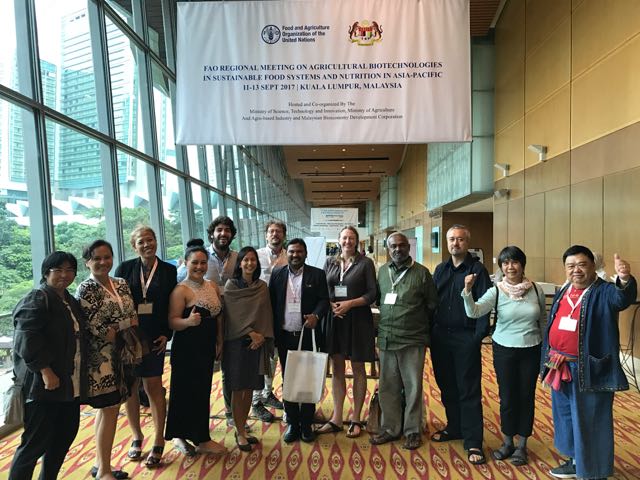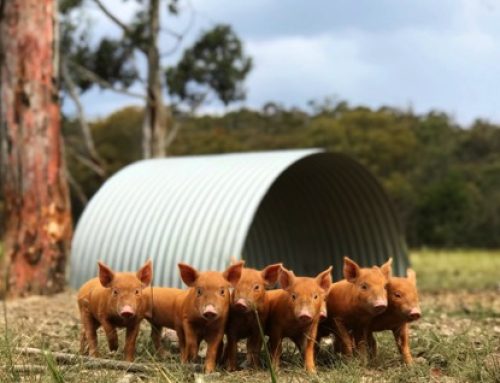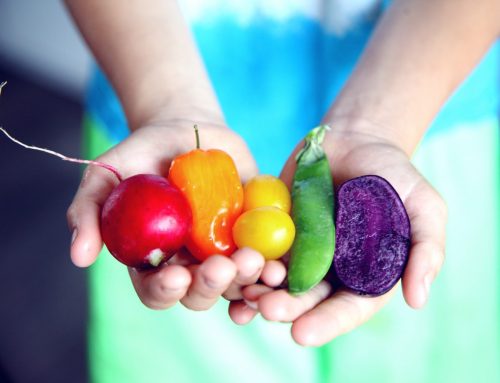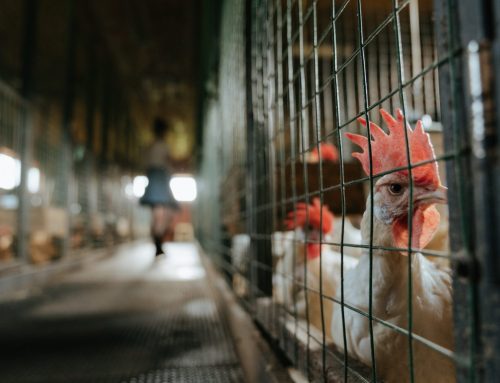The Australian Food Sovereignty Alliance (AFSA) is deeply disappointed at substance of the proposed new planning provisions from the Victorian Government’s work on Planning for Sustainable Animal Industries. Despite our efforts to assist Agriculture Victoria and the relevant ministers in understanding the practical realities of small-scale livestock farmers, the draft graduated controls don’t appear to reduce red tape for small-scale commercial farmers, nor homesteaders or hobbyists, and yet they make it easier than ever before to set up a 1000-cattle feedlot.
“It’s completely bizarre,” said AFSA President Tammi Jonas, a small-scale pastured pig and cattle farmer from Victoria. “The proposed new controls would mean that farms like mine with 12 sows and 2 boars, so about 100 pigs on 10 hectares of our 28-hectare farm at any time, would have to apply for a permit just like those with 1,000 pigs in a shed, and yet the farmer next door could put up to 1,000 cattle in a feedlot right up to our fence line without a permit nor a buffer. Whose interest does this really serve?”
Under the proposed new provisions, a hobbyist poultry grower could have up to 200 birds without a permit, but a 50m setback from dwellings on another property would apply. The next level, allegedly designed to better enable low-risk small-scale pastured livestock production in the Farming Zone, only allows up to 450 birds and requires a 100m setback – a prohibitive requirement on smallholdings that may be only 100m wide in some cases. For pigs, the ‘streamlined application process’ would only apply to farms with up to 8 sows and 1 boar plus ‘only’ their progeny, ruling out buying in new breeding stock to maintain genetic diversity, a real concern for the heritage breeds movement.
“This is a system designed to encourage huge intensive poultry farms and make it much harder for small scale, sustainable farms. It means that small farmers will yet again have to wade through huge amounts of red-tape – just the same as large-scale intensive farms. It’s just not viable,” exclaimed award-winning pastured poultry farmer Bruce Burton of Milking Yard Farm.
Small-scale farms would now become classified as Broiler Farms and be subject to the Victorian Code for Broiler Farms 2009. This means small growers with 500 broiler chickens spread across 20 hectares will be treated the same as farms with 500,000 birds in sheds.
The scheme fails to take account of the stocking density.
The scheme allows large intensive shed farms to add free range outdoor areas without any restrictions at all. It allows these farms to add 150,000 chickens to a range area without any of the restrictions placed on a small farmer with 500 chickens.
AFSA met with Agriculture Victoria prior to the public release and conducted a survey of small-scale livestock growers, sharing the 80 responses with the Department that showed how out of touch the stocking rates for streamlined applications were. We highlighted the regenerative practices many of these farms pride themselves on, such as frequent moves of animals, mobile housing and feed infrastructure, and a focus on maintaining pasture year round.
We are mystified at how poorly the draft planning provisions acknowledge the actual risks to environment and amenity presented by our members’ farms. The proposal to allow cattle feedlots of up to 1,000 cattle in the Farming Zone without a permit nor a setback from neighbours, while 100 pigs or 450 poultry in highly mobile systems trigger the notice and review process, suggests that there may not merely be ignorance of small-scale farming systems, but something more sinister at play.
We call on Minister for Agriculture Jaala Pulford and Minister for Planning Richard Wynne to explain why small-scale pastured pig and poultry farms are to be subjected to greater scrutiny and compliance costs than cattle feedlots, instead of being treated under the law like other grazing systems that rely on supplemental feed such as the majority of Victorian beef and dairy cattle.
Contact:
Tammi Jonas, President
0422 429 362





